


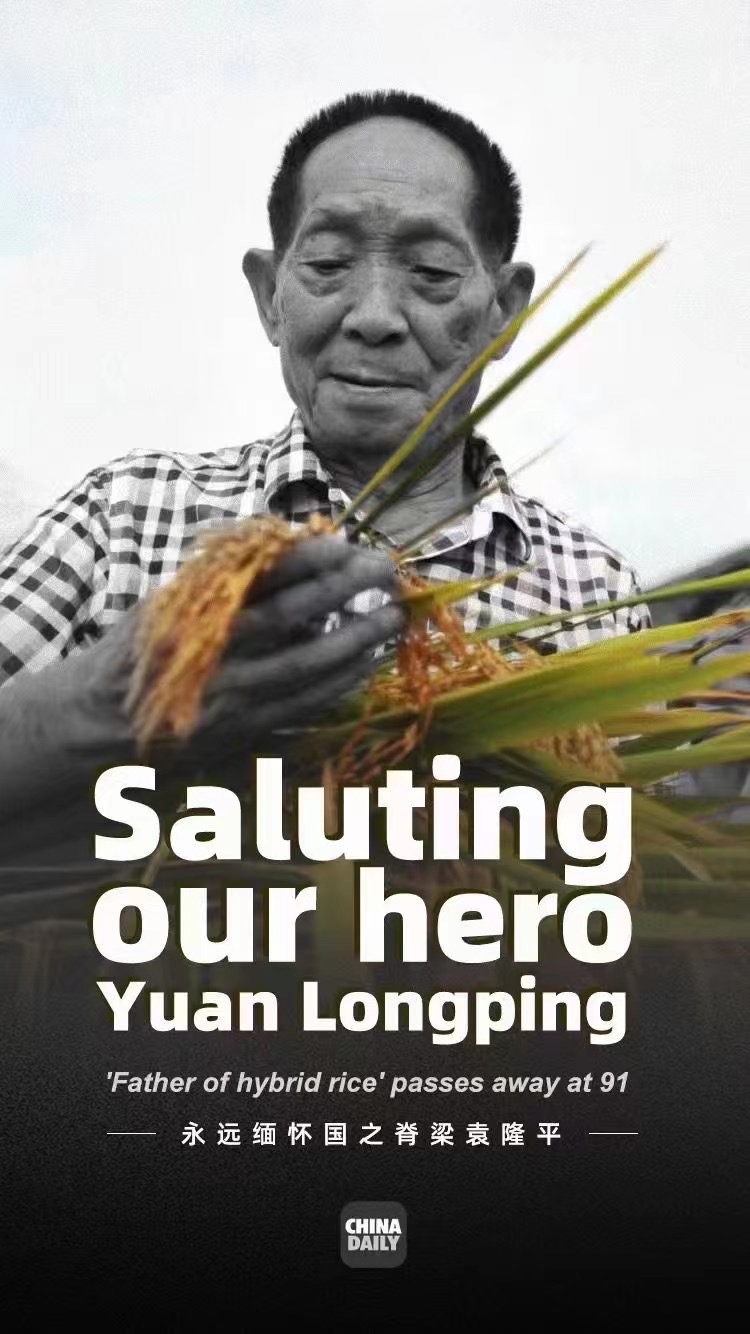
Related: Worldwide mourning
- World Food Prize Foundation remembers Yuan Longping (Read more)
- President emeritus of the World Food Prize's statement on passing of Yuan Longping (Read more)
- FAO official mourns death of China's 'father of hybrid rice' (Read more)
- People bid farewell to the 'Father of hybrid rice' (Read more)
Chinese scientist Yuan Longping, renowned for developing the first hybrid rice strain that pulled countless people out of hunger, died of illness at 91 on Saturday.
The top rice scientist in China passed away in a hospital in Changsha, capital of Hunan province, at about 1 pm, according to the hospital and other sources.
Family members hummed songs to Yuan in his final hours, reporters at the site said.
As the vehicle carrying Yuan's body drove to the mortuary, people gathered along the road to say goodbye to him.
On China's Twitter-like Sina Weibo, the news has been viewed 950 million times so far, with netizens from all walks of life expressing grief at the death of a great man.
"Three times a day, when we enjoy the fragrance of rice, you will be dearly remembered," said a comment that has been liked more than 600,000 times.
"Deeply saddened by the death of Prof Yuan Longping, my dear Master. He devoted his life to the research of hybrid rice, helping billions achieve food security. You were my Inspiration. May you rest in peace," said FAO Director-General Qu Dongyu in a tweet.
Having spent over five decades in hybrid rice research, the academician with the Chinese Academy of Engineering has helped China work a great wonder -- feeding nearly one-fifth of the world's population with less than 9 percent of the world's total land.
Yuan once said he had two dreams -- to "enjoy the cool under the rice crops taller than men" and that hybrid rice could be grown all over the world to help solve the global food scarcity.
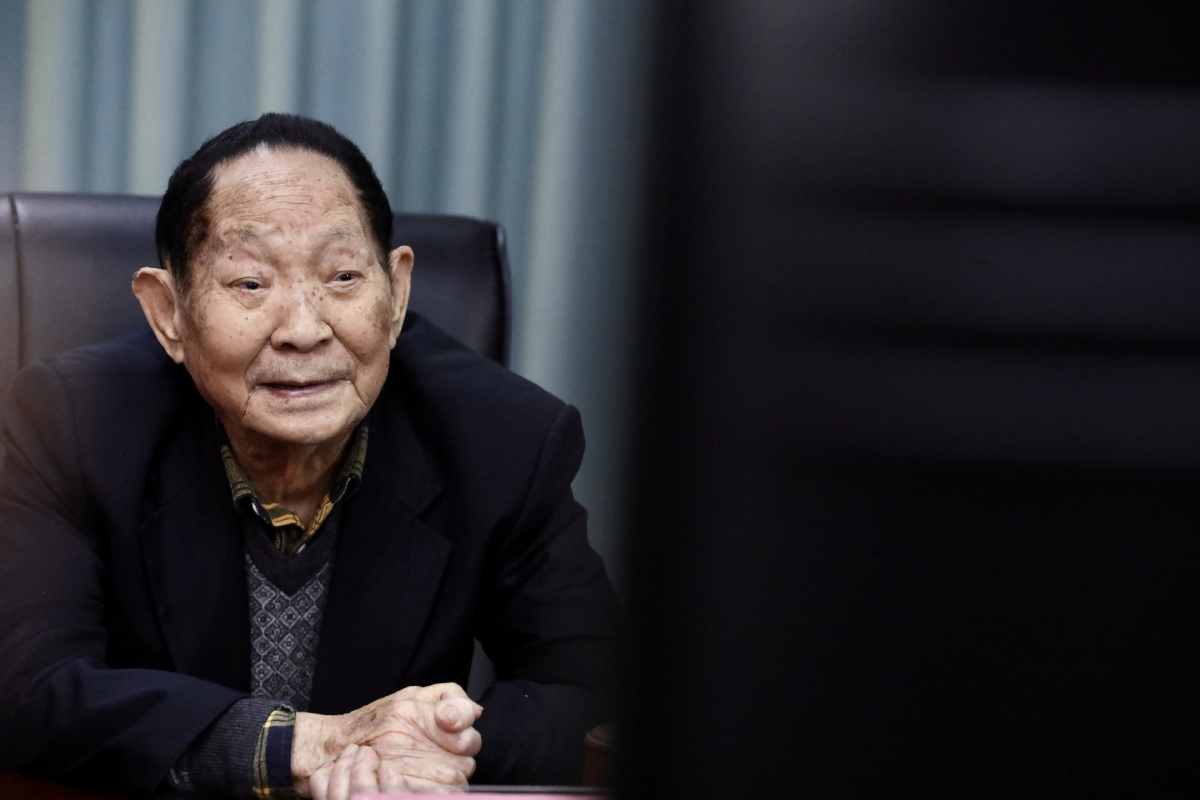
Father of hybrid rice
In 1949, Yuan applied for Southwest Agricultural College and began his special connection with rice -- a staple food of the Chinese people that would become the focus of his lifelong research career.
A discovery of a peculiar wild rice species by Yuan in the southern island of Hainan in 1970 became the prelude of China's decades of hybrid rice research. Three years later, he cultivated the world's first high-yielding hybrid rice strain with three lines, namely, the male sterile, maintainer and restorer.
Hybrid rice has since been grown across the country and farmers reaped incredible output after switching to Yuan's hybrid varieties.
Hybrid rice recorded an annual yield about 20 percent higher than that of conventional rice strains-- meaning it could feed an extra 70 million people a year.

From China to the world
While food shortages have long been consigned to China's past, Yuan, the famine fighter, has a much bigger ambition -- to save the world from starvation.
Since the 1980s, Yuan's team has offered training courses in dozens of countries in Africa, the Americas and Asia -- providing a robust food source in areas with a high risk of famine.
Globally, more than 820 million people were hungry in 2018, according to a UN report. And if hybrid rice is planted in half of the world's 147 million hectares of paddy fields, the additional yield alone can feed another 500 million people, said Yuan.
Yuan's team has continued to make new breakthroughs. Yuan's team was invited to make a trial plantation of the saline-alkaline tolerant rice in experimental fields in Dubai in January 2018, achieving huge success. China's export of saline-alkaline tolerant rice and the technique has been eyed as a way to combat the world's food insecurity.
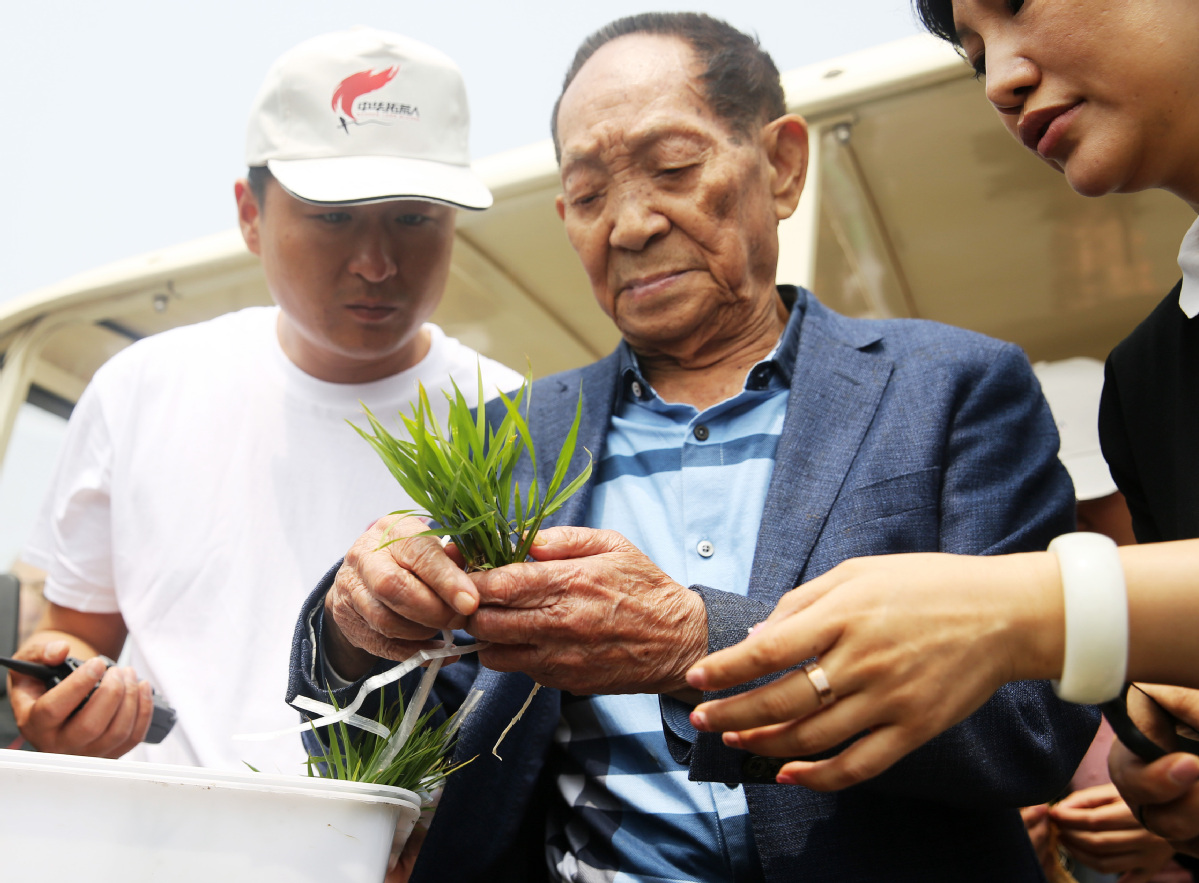
From having enough to eat to eating well
Now the focus of Yuan's hybrid rice project has changed from increasing output to green and sustainable development.
In September 2017, a strain of low-cadmium indica rice developed by Yuan's team and the Hunan provincial academy of agricultural sciences was able to reduce the average amount of cadmium in rice by more than 90 percent in areas suffering from heavy metal pollution.
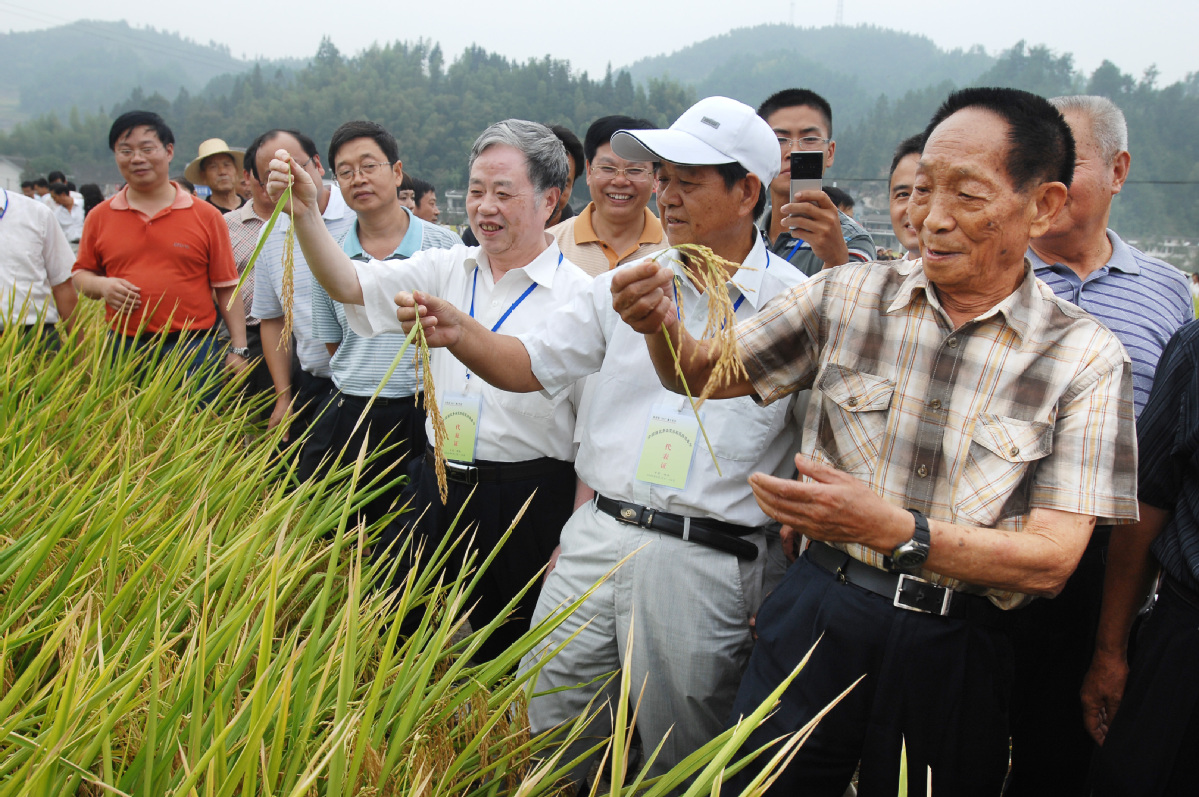
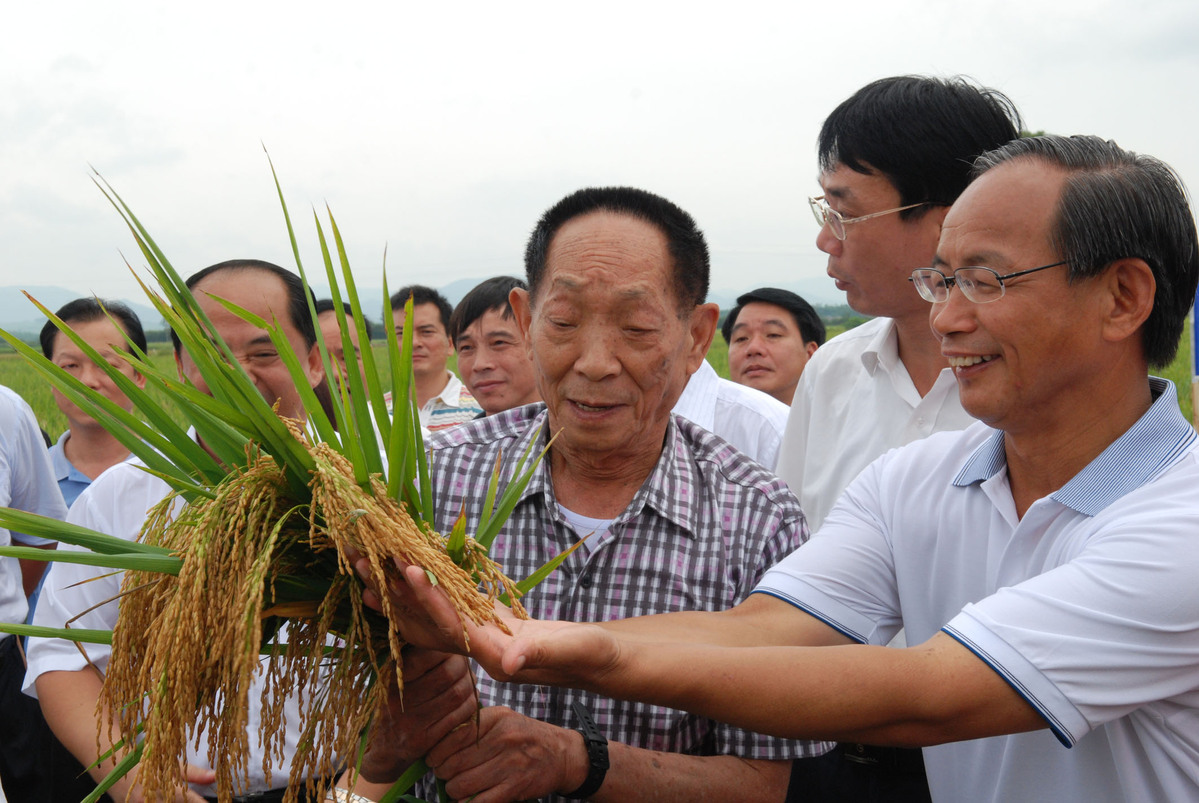
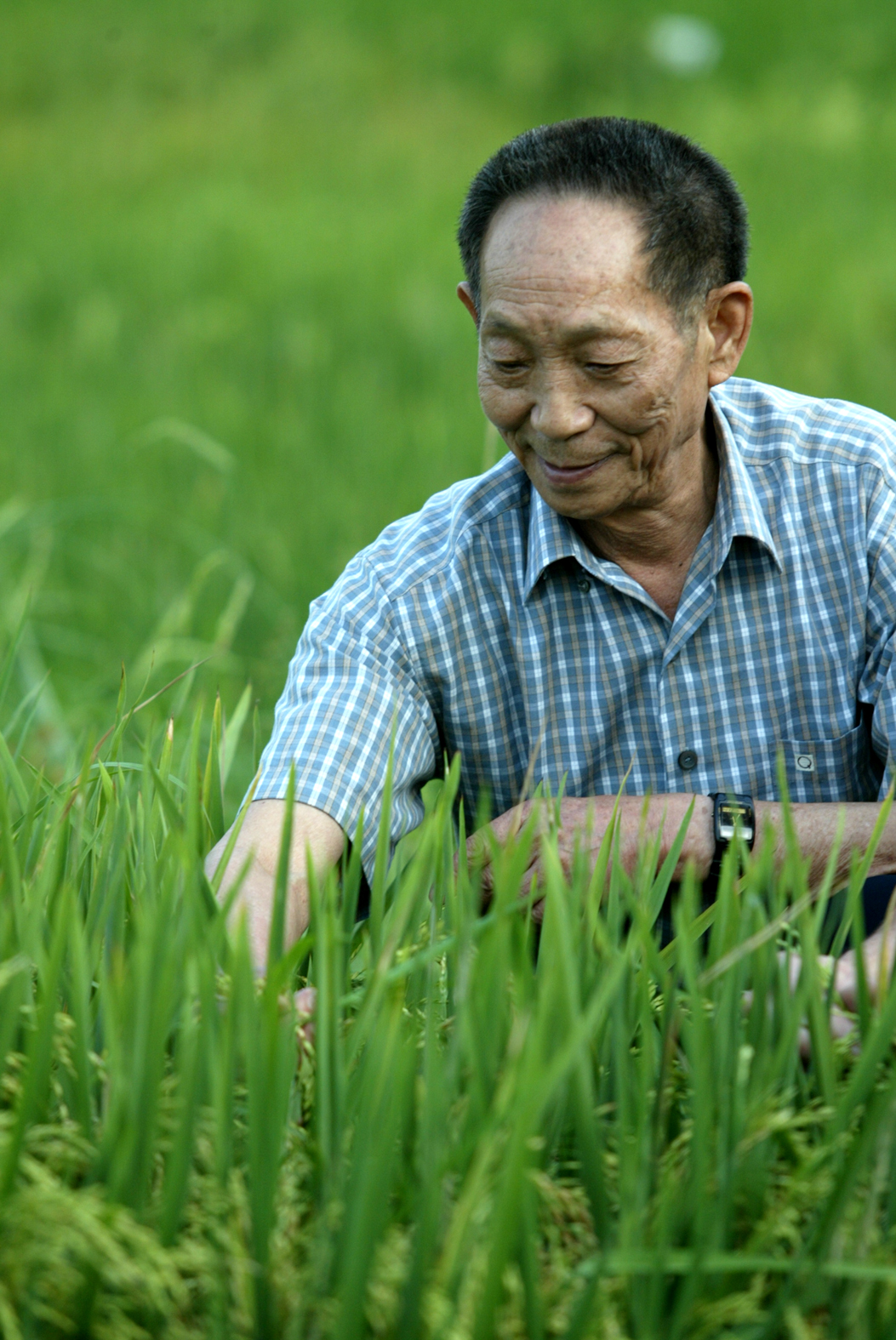
If you have any problems with this article, please contact us at app@chinadaily.com.cn and we'll immediately get back to you.